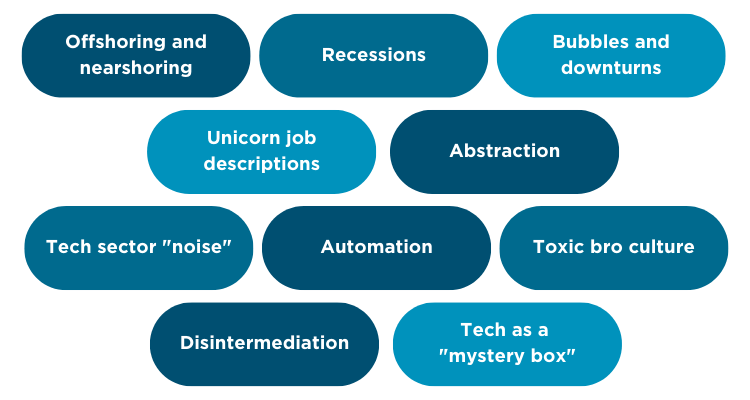
Not long ago, I installed a brand-new voltmeter into an old car of mine. Any car, even if it runs on petrol or diesel, is completely reliant on electricity. So, naturally I wanted to keep track of that vital indicator. The funny thing was, I didn’t realize that my brand-new voltmeter was broken even before I installed it. And because I keep busy, I ended up driving about 30,000 miles over the next couple of years with that broken voltmeter as a constant companion.
Yep, that voltmeter was a false indicator, dutifully informing me briefly that my car was dead, month after month, even though I was driving down the road just fine. Then, one day, it all caught up with me: My battery had worn out, but I had no way of knowing. I ended up stranded at one of my favorite kayaking points – without mobile phone access.
Here’s a picture of me replacing that little harbinger of doom. What would probably take a mechanic about 30 minutes to fix took me about 24 months and three hours to fix.

Me looking more than slightly flummoxed as I replaced my failed voltmenter
What does my little story have to do with the world of IT? Well, I think our industry tends to look at the wrong indicators when it comes to careers, employment and future opportunities. When we look at the wrong indicators, we tend to fall victim to toxic IT narratives. Let me explain.
Toxic IT Narratives: Noise vs. Reality
I’m sure you’ve heard about our current strange economy. We hear conflicting stories about recessionary pressures, tech sector layoffs and record demand for jobs in every sector, including information technology (IT). We remain well in record territory in terms of hiring in the IT and security sector. That trend is likely going to continue.
But there’s still a lot of noise out there. We experience that noise in the media we read and in our conversations about careers. So, why is it that folks keep thinking that tech is going to implode at any given time? Well, I’m glad you asked!
Identifying Toxic Narratives
It’s impossible to avoid this noise because our conversation about technology is informed by a long-standing set of practices, issues and realities that somehow create toxic narratives about IT.

The toxic narrative word cloud
Each of these terms describes practices, occurrences and issues that tend to cloud our thinking. They dissuade people from either entering tech careers, or even trusting technology in the first place.
Let’s take a look at each term:
- Recessions, bubbles and downturns: Every sector has downturns. But traditional wisdom says that as soon as a recession hits, IT workers will be the most affected. After all, according to traditional wisdom, IT workers simply support existing business. But we don’t live in a traditional world, anymore. Every business sector, especially finance, energy and health care, relies on tech workers to innovate and constantly transform. This is the new way of doing business.
- Tech sector noise: Layoffs in IT startups and big tech can generate lots of noise in the media. But these types of events and sectors are increasingly outliers. All organizations need technologists, not just one sector.
- Offshoring and nearshoring: Organizations worldwide have offshored and nearshored for decades. Sure, the practice is sometimes controversial. But consider this: Despite ongoing offshoring practices, corporations still can’t hire enough tech professionals.
- Virtualization: At one time, most IT jobs involved working on hardware found in a server room or a data center. As hardware gets abstracted and virtualized in data centers and into the cloud, we find that some job roles are eliminated or minimized. But virtualization has created more jobs, job roles and skills than it has eliminated.
- Toxic bro culture: The IT space has become notorious for fostering male-dominated, toxic workplaces. Over the years, however, we have seen some progress. Many progressive organizations across industries address this issue successfully. Nevertheless, no one wants to enter a toxic work environment, and this remains a major reason why tech careers aren’t perceived as a healthy option.
- Automation: Technology automates, abstracts and replaces. That’s why it’s so powerful. Ever since the beginning of the industrial revolution in the 1700s, we’ve seen automation eliminate jobs. But it has also created many more jobs and opportunities than it eliminates.
- Disintermediation: Any healthy business creates efficiencies by eliminating unnecessary elements of a transaction. After all, why drive down to a store to view an article of clothing when I can pop open a browser and order it online? Why work with a broker when I can purchase a stock online. If you’ve thought this, you’ve engaged in the practice of disintermediation. But it seems that when it comes to IT careers, people tend to think that they’ll inevitably get left behind as tech moves forward.
- Unicorn job descriptions: In terms of HR, the term “unicorn candidate” often refers to a particular individual that possesses myriad technical qualifications. This unique combination of people skills, ambition and a distinct flare for the job frankly, set or even reflect unrealistic expectations. These do nothing to help an organization engage in a meaningful dialog about using tech to fulfill business goals.
- Tech as a mystery box: As technology inexorably becomes more available and miniaturized, it becomes more useful – consider how you use your mobile phone. But a negative part of our progress is that the vast majority of people see tech as something magical, rather than as something that humans can use to create real solutions. Don’t let someone else’s magical world view of tech scare you into thinking that tech is something to avoid.
Each of these can result in doomsday narratives and noise. I’m not saying the above terms are false narratives in and of themselves. Not at all. But they are examples of practices and realities that we need to track and manage. Otherwise, we’ll fall victim to resulting false narratives.
Toxic Narratives and the Ever-approaching Tech Doomsday
It seems these days that folks are just fixing to be triggered when they hear the terms listed above. They are bracing themselves for an imminent tech sector collapse, like the dot-bomb bubble burst back in the late 1990s, or more recently, the 2008 collapse. I realize that these are ancient occurrences to most people; but these events continue to toxify thinking when it comes to IT careers.
Combined talk of tech sector downturn with a whisp of “automation is coming,” and suddenly we see how people fall into the trap of thinking negatively about a tech career. Combine these toxic narratives with a dose of “you’re going to get nearshored,” and folks will run from tech altogether.
Contextualizing Layoffs and Today’s Economy
We’re seeing an unprecedented condition where we may be entering a recessionary period but are experiencing record shortages of employees. This is the pre-eminent supply chain problem today. So, when you hear about layoffs, consider that the unemployment rate in the tech sector is 2.3%. If you want some context for this number, the conventional wisdom will argue that any number below 4% effectively means no unemployment.
Consulting the Right Indicators
It’s important to look at the right indicators. Whether tech is a career you’re considering or a career you’re already in, it’s important to be able to contextualize the information you’re hearing in the media to combat these toxic narratives.
Here are a few resources to consider as you manage your career:
- CompTIA Tech Jobs Report: Updated monthly, this report gathers from multiple resources
- U.S. Bureau of Labor Statistics report: Updated monthly, this is a U.S.-based report used throughout the world as an employment bellwether
- The CompTIA IT Industry Outlook: Annual forecast that identifies trends likely to impact technology in the upcoming year
- 2022 State of Cybersecurity Report: Annual report that examines the disconnect between root cause and symptoms
- Cyberstates: The definitive guide to national, state and metropolitan area tech workforce analytics (check out the Australian version too)
- CyberSeek: A tool that provides detailed, actionable data about supply and demand in the cybersecurity job market
So, now you’ve got a few good tech indictors to consult. Can you think of additional resources that you’d like to share? If so, please let me know!
Ready to upgrade your IT skills? We've got great news! You can save big on CompTIA certifications and training right now.

